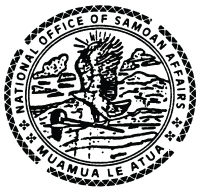STUFF

New Zealand bucks the global trend by having one of the highest levels of trust in the Government.
In particular, people have more trust in the Government and the media, less trust in non-governmental organisations (NGOs) and the same level of trust in business compared to a year ago, according to this year’s Acumen Edelman Trust Barometer
When compared to other countries, New Zealand bucks the trend with one of the highest levels of trust in the Government. About 51 per cent of the general public trust the Government, compared to 46 per cent last year.
Overall New Zealand has moved up one point on the global trust index to 44 points. China has the highest level of trust at 74 points while Australia has a rating of 40 points.
Trust in the United States dropped nine points to 43, the steepest decline ever measured by the index.
Acumen Republic chief executive Adelle Keely said New Zealanders felt the Government was “fairly stable”, and remained steady despite the change in Government last September.
“This can be linked to our trust in the transparency of our Government and New Zealand’s status as one of the least corrupt countries in the world.”
However, the Government still had work to do, as it was failing to meet expectations on building infrastructure, driving economic prosperity, and ensuring the poorest were catered to, she said.
The media has become slightly more trusted by the general public, rising to 31 per cent, up from 29 per cent, but the fourth estate remains the least trusted institution in New Zealand.
“We can see that fake news is having a detrimental impact on trust in the media and other institutions, with almost two-thirds of Kiwis worried about the impact of fake news,” Keely said.
About 64 per cent of respondents could not recognise journalism from rumour, and they were also struggling to tell if a piece of news was produced by a respected media organisation.
New Zealanders expected media to be guarding information quality and educating people on important issues, she said.
“However, many people feel media is more focused on providing entertainment to attract larger audiences. This is leading to a disengaged population with half of those surveyed saying they consume news less than weekly.”
NGOs were seen to be failing to protect people’s privacy and personal information, failing to ensure the poorest had the minimum they needed, and failing to ensure everyone had equal opportunities to succeed.
The report says NGOs have potential to step up.
“The role of NGOs is to act as the conscience of society, if there is a security or privacy breach then they should defend the individual and hold the organisation responsible to account,” Keely said.
Some NGOs were in a “compromising position” as they had received funding from the Government, she said.
Fake news about New Zealand has involved several celebrity death hoaxes.
“They cannot afford to be too outspoken for fear of this having repercussions.
“In some ways, our social welfare system has determined what NGOs do by outlining it in contracts and having strict performance measures,” Keely said.
“This makes sense in terms of maximising a return on investment, but the unintended consequence of this is that NGOs have less opportunity to experiment, to disrupt and really challenge the status quo.”
Trust in businesses is steady with last year, however, respondents wanted companies to take more of a lead.
About 60 per cent wanted businesses to help shape policy and speak out on important issues.
“People are looking for a longer-term focus and commitment from business,” Keely said.
“In our disruptive environment, where the future of work is looking significantly different, businesses will need to take the lead to build greater trust.”
About 1000 people were surveyed each year over three years to collect data for the survey.

